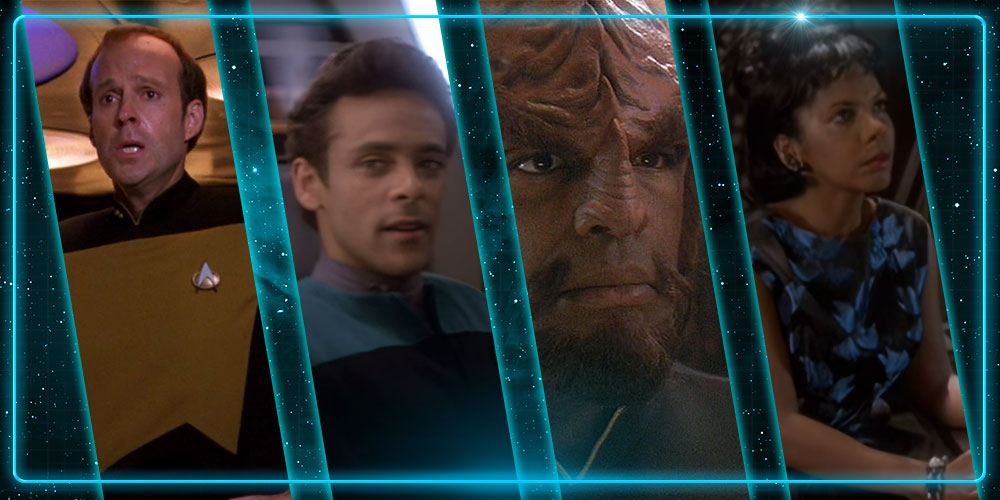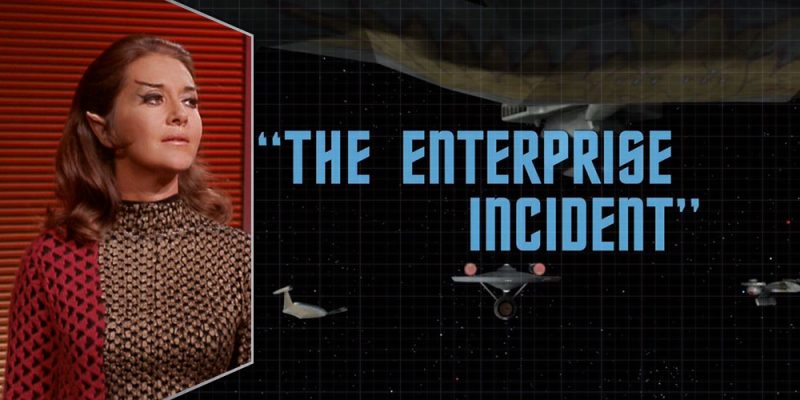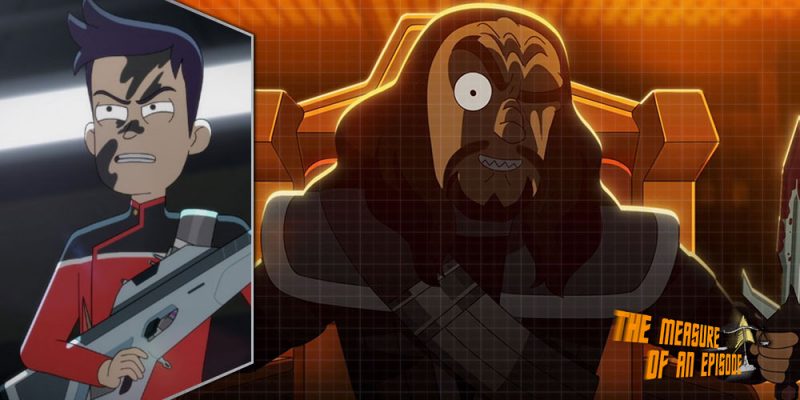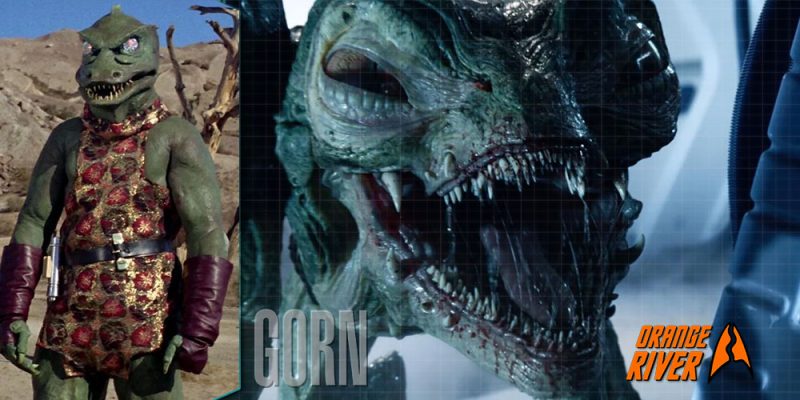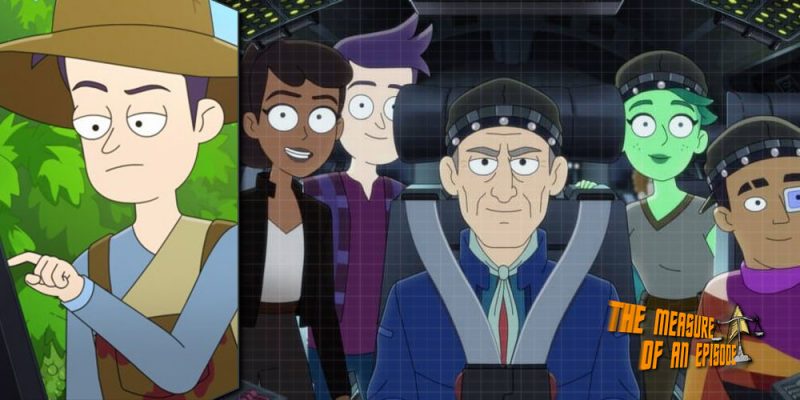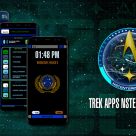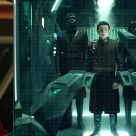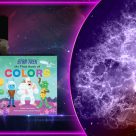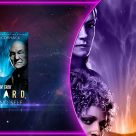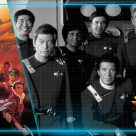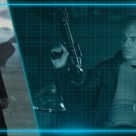“Maybe I’m not making myself clear, Guinan. Barclay, well, he’s always late. The man’s nervous. Nobody wants to be around this guy.”
“If I felt that nobody wanted to be around me, I’d probably be late and nervous too.”
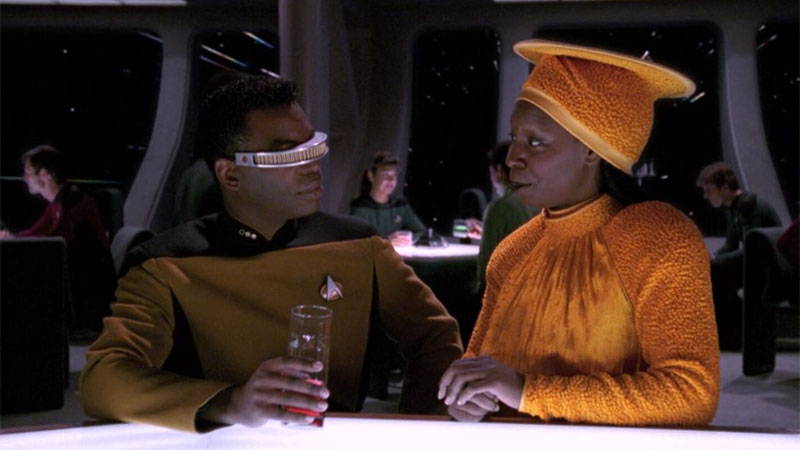
A simple conversation between Geordi and Guinan within the walls of Ten-Forward during Star Trek TNG’s ‘Hollow Pursuits’ struck a nerve with me because it was very much like looking into a mirror. This was and still is my social self. I am late to the party when it comes to being aware of what others think of me socially, but eventually, I figure out that nobody wants to be around me because I’m too weird for them to understand. And they don’t want to take the time to understand. I’m a Neurodivergent person who was born this way and for a long time, I believed I had friends when I actually had none at all.
In an article titled ‘IDIC Includes Me, and That’s Why Star Trek Matters’ that I wrote for StarTrek.com, I spoke about how I went to many elementary schools simply because teachers thought I was academically stupid because I was slower and therefore, unteachable. Nobody wanted to teach me to learn and so they sent me away. That’s very much how it was and still is in my social life. I try my best to be a kind, loving, compassionate, thoughtful individual, but I get overeager and clingy, and I try to be too much of a friend and I suppose my intense kindness can frighten people. A lot of people may not be used to intense levels of kindness, so they send it and me away.
The constant rejections feel like slaps in my face and heart and serve as a constant weight on me that seems to have no cure. My home life has always been very difficult because all but my mother chose to deem me as ‘unworthy’ of love because of my Neurodivergency and so I was abused for many years. Moments that were seen as milestones to me and her weren’t seen as important to other families and were even mocked by them through displays of disgraceful behaviour. I wasn’t good enough, but the main perpetrator of that message, otherwise known as my main abuser, is now gone from my life permanently and my hope is that I can work to build a life that is devoid of the hate they tried to pollute me with when they were alive and hurting me.
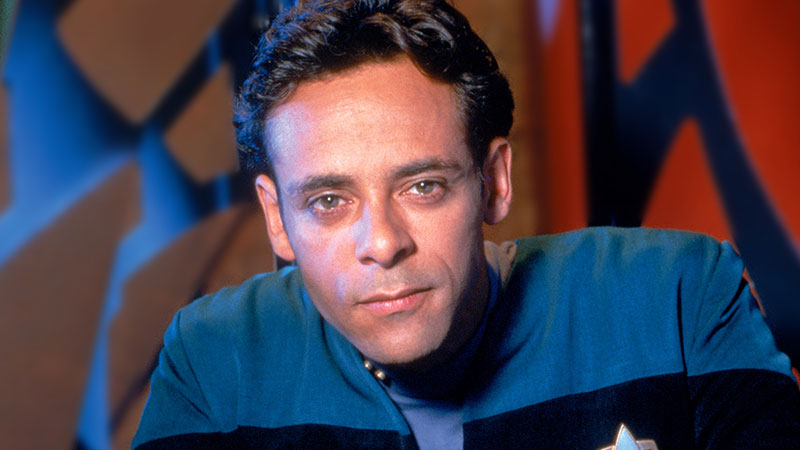
When Julian Bashir’s parents felt that nobody would want to be around their son for his academic and social delays, they took him and had him surgically altered as one would a broken machine. But that’s not reality and I wouldn’t do that to myself even if it were possible. I believe that I was born with challenges to teach others patience, love, compassion, and all the other positive qualities that can help make individuals inherently good if they wish to be. The problem is, however, that people struggle with wanting to be kind because it’s hard to care about what is hard to understand. Blessed be the characters of Julian Bashir and Spock, as they simply endured difficult tasks and people and worked with them until they were able to get through to them!
They exercised utmost patience, dedication, and hard work to get results and results they did get. In August 2021 a virtual GalaxyCon panel featuring members of the Star Trek: Deep Space Nine cast aired online and during that panel, Chase Masterson said that we should be more like Spock and stand up for those who lack the ability to stand up for themselves. That is a truth we ALL need to live! This world can be so cold and unforgiving and sometimes we can lose our kind selves with it, but we don’t need to.
We need to be good and kind and that is what Chase’s message was all about. We may not find it easy to care about one another, but we must not forget to love one another. If people aren’t given love even through friendship, they can become love-starved and pretend as if they are welcome and wanted in situations that they aren’t, ultimately trusting the untrustworthy, and allowing others to openly treat them poorly and diminish their worth just so they have some sort of attention on them. It’s a warped belief that having bad attention on you is truly better than being left alone and isolated from the social world. I myself am guilty of having such a belief and letting it rule me.
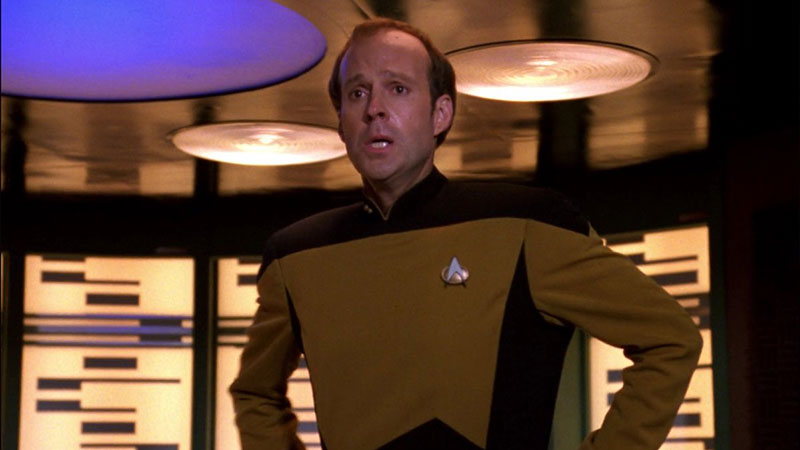
Back when I was in college, I spent a good deal of my free time socializing with individuals who belonged to the same religious organization that I did because I felt I would be safe there. In truth, I was very love-starved and I didn’t realize it until later on. The people I surrounded myself with were laughing at me, not with me. I was once again ‘late’ in that I couldn’t tell people’s true intent in letting me be in their world; they needed someone to laugh about and that someone was me. I only learned that later, long after those people had graduated college. I’m now much older and am just now coming to terms with the fact that I was love-starved and had no love for myself.
I was like Reginald Barclay in that I concocted a fantasy in my mind about what I hoped others would see in me and how they would welcome me. Barclay knew he was not loved or even liked; he knew he was the mockery of the Enterprise-D, but he fantasized about being seen as more. He even went so far as to create that fantasy in a holodeck, which is something that the rest of the senior crew became aware of in TNG’s ‘Hollow Pursuits.’ Eventually, Barclay learned to let that fantasy go and grow beyond his ‘starvation’ into someone who was able to receive the nourishment that he sought. It was a struggle for him, however, to move from being tolerated to being loved, but he eventually got there after he reconnected the lost Voyager with Earth after everyone else had given up on them. He refused to give up on them despite people’s lack of tolerance for his ideas, but he overcame the lack of tolerance and proved everyone wrong.
The whole concept of tolerance, I believe is an antiquated, exclusionary idea that has no place in the same space as IDIC. In the same virtual GalaxyCon panel where Chase Masterson spoke about Spock and standing up for each other, Max Grodenchik spoke on the true meaning of tolerance. He said that we should do more than just tolerate each other and that got me thinking a lot. Tolerating is admitting differences exist – appreciating is LOVING that differences exist. Max was so RIGHT in his words. We need to do more than just TOLERATE – we need to love and stop throwing each other away like garbage when people are difficult to love. Loving that differences exist is part of what IDIC is about and true love includes helping people love themselves and find the good in themselves when they struggle to.
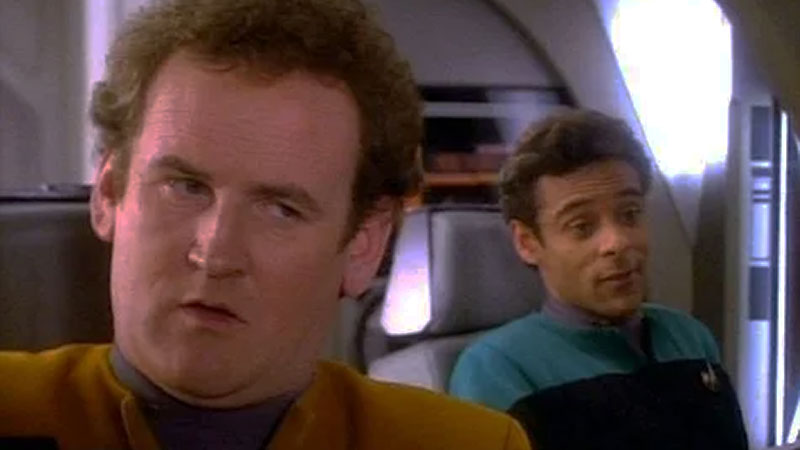
That makes me think of a scene in Deep Space Nine’s episode ‘The Storyteller’ where Dr Julian Bashir outright asks Miles O’Brien, “Do I annoy you?” Instead of giving an honest response, Miles asked what sort of a question it was and did his best to avoid answering, even attempting to use rank as an excuse to try and get out of having to answer it. Julian is a Neurodivergent and clearly lacks the ability to tell that Miles doesn’t want to answer the question for fear of hurting his feelings, but he also doesn’t wish to be rude to a superior officer and risk getting put on report. In short, Miles decides to play the ‘tolerate’ card and gives answers that sends Julian the message that he’s tolerating him out of pure politeness.
There is little doubt by Miles’s facial expression and non-verbal reactions that his answer to Julian’s question is “yes,” but he doesn’t know how to verbally answer without causing hurt. He doesn’t want to cause hurt, but he is also struggling to maintain his patience.
During the conversation, Julian admits he acts the way he does ‘out of nervous habit’ and is worried that Miles will hold it against him. Very much like Geordi did to Guinan regarding Barclay, Miles gently brushes Julian off as if Julian is the only problem in the room. Mistaking tolerance-based conversation for friendly conversation, Julian continues and tells Miles, “I don’t think it’s really necessary to call me sir…I’d simply prefer it if you’d call me by my first name.” Eventually, the two do become friends, but it takes time for Miles to look beyond what he sees and learn to love Julian rather than just tolerate him.
Looking beyond what obviously may put us off to making friends with difficult people is the socially honourable thing to do, but few have that honour. Honour, however, is something that Worf holds dear to his heart, and he views few things as challenging. He holds honour above all else, firmly proving this in Deep Space Nine’s ‘The Way of the Warrior’ when he sacrifices all prestige and material possessions within his Klingon culture just because he refuses to do something that is against his beliefs. He would rather stand alone and be labelled as ‘socially difficult’ than become someone he is not just to fit in.
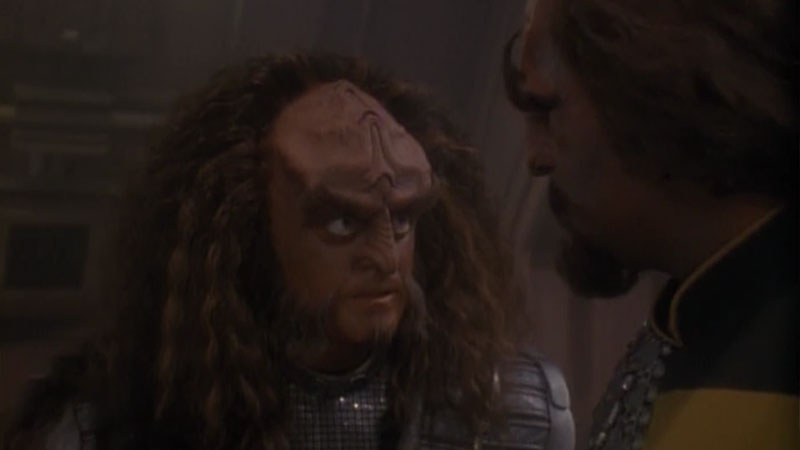
There is nothing honourable about sacrificing your authentic self just to fit in, but not many understand this or accept this as proper thinking. Many believe that it is easier to sacrifice morals, integrity, and other parts of their authentic selves so they can have better access to opportunities. Even Neurodivergent people ‘minimize’ themselves to appear Neurotypical simply because they know ‘typical’ society is not so kind or welcoming to those who classify themselves as having any type of a disability.
People in other marginalized, underprivileged communities can’t minimize or erase who they are when they are seeking opportunities to improve their quality of life, so why does society force Neurodivergent/disabled individuals to do that with the stigma they place on them? Nobody should have to erase or hide who they are just to succeed or find joy in life and yet that is the message that society is sending out simply by tolerating the inequalities that Neurodivergents face on a daily basis.
Star Trek is supposed to be about IDIC and IDIC means Infinite Diversity in Infinite Combinations. Infinite Combinations is supposed to include those with Neurodivergencies. It’s not easy being someone who sees and interprets the world, people, or situations differently than others, but people like me have to do it every day because we deserve to live a life just like everyone else.
Neurotypical society and Neurotypical Starfleet officers mirror each other in that they are cold, unforgiving, and intolerant towards those who struggle to live up to ‘Starfleet’s expectations. We see multiple instances in Star Trek where ‘typical’ Starfleet officers struggle to understand and be kind to those who they can’t easily understand. In some episodes, the officers even fail to be kind to those who struggle with fitting in.
Guinan, I believe, was totally correct in calling Geordi out for his inappropriate behaviour and lack of compassion towards Barclay’s struggles. Julian was likewise correct in advocating for himself to Miles and making it clear that they could be friends if Miles would only discard his own intolerances and prejudices.
That being said, Kasidy Yates from Deep Space Nine made a valid point when she told Captain Sisko in Deep Space Nine’s ‘Badda-Bing, Badda-Bang,’ “…We are no longer bound by any limitations. Except for the ones we impose on ourselves.”
If we cannot let ourselves progress beyond tolerance and learn to love others, we only hurt our own growth.
If You Feel You Need To Seek Help Or Advice Please Head To: You Are Not Alone
Article written by – Heather Leigh Cameron (she/her)
Heather is a dual citizen of both Canada and the United States. She is a freelance writer who also happens to be neurodivergent and has a passion for writing, acting, video-making, playing the clarinet, and cooking. Her work can be found on www.facebook.com/heatherleighfreelancer and https://www.youtube.com/user/Chameleon77777
You can find Heather on Twitter & Instagram
WRITE FOR US
WANT TO FOLLOW IN THE FOOTSTEPS OF THE AUTHOR ABOVE? THEN
You can read more like this HERE

